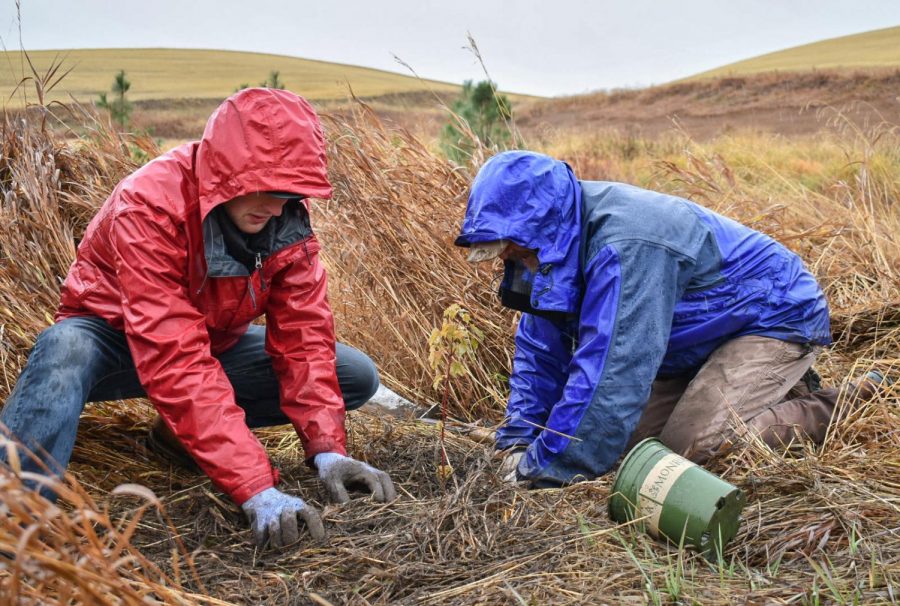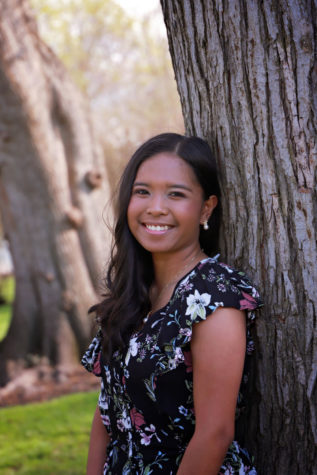Volunteers work to restore habitat
Native plants better filter water in comparison to invasive species; over 200 planted despite weather
Volunteers plant native plants to improve the quality of the Paradise Creek ecosystem. The Palouse Conservation District coordinated the event to support PCD’s restoration efforts.
October 21, 2019
Volunteers planted about 200 native plants in an effort to restore habitats and improve water and soil quality on Saturday along Paradise Creek.
Jodi Prout, Palouse Conservation District education and outreach coordinator, said that PCD organized the event as part of the statewide Orca Recovery Day campaign.
She said that about 20 people volunteered despite the rain and cold weather.
Alison Crowley, PCD education/outreach and restoration technician and AmeriCorps intern, said invasive species have altered the ecosystem. Planting native plants will help address agricultural run-off, decrease erosion and improve habitats.
“Invasive species don’t serve the ecosystem as best as native species could, which means they don’t filter as great,” Crowley said.
Native plants also create buffers along the habitats, Prout said. This enhances local water, which will affect other water sources as well as the fish and mammals that live in them.
Crowley said volunteers worked at four sites. Willows and dogwoods were planted in wet regions. These plants have longer roots, which help reduce soil erosion, especially during flooding. Shrubs were planted in dry areas.
Jim Mital, National Marine Fisheries Service natural resource management specialist, said the project united conservation districts engaging in various restoration projects across the state.
“What we do here can really make a difference for the whole state,” he said. “It’s nice to see here in Pullman, Washington, that we’re doing something to show we’re united with the effort to improve habitat for orcas.”
Andrew Munson, event volunteer, said local water quality affects people’s health. However, it also affects the health of the ecosystem that people depend on for a high quality of life.
“Increasingly, I think we might be getting isolated from our environment,” he said. “I think it’s important for folks to spend time outside in their environment and try to understand how it’s directly connected to their own quality of life.”
Rawley Davis, senior environmental science major, said everyone is responsible for caring for the environment. Small actions, such as practicing the three Rs — reuse, reduce, recycle — can make big changes.
“With the changing climate we’re in, it needs to be stressed that there is an individual part we can all play,” he said. “I don’t think it’s totally fair to put your blame on other sources when it really can be helped from the individual level.”
Prout said she was encouraged to see college students volunteering for a good cause.
“It was definitely a labor of love,” she said. “If we start making these small changes and we’re aware of what we’re doing, we can start the conversations now.”























